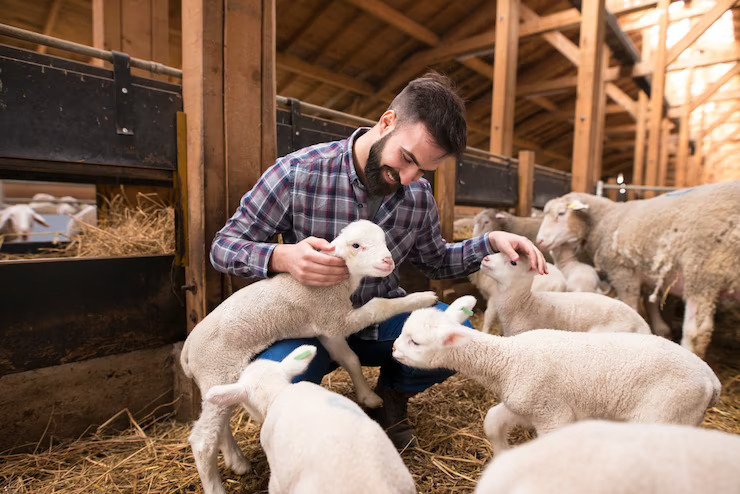The Pros And Cons Of Working With Animals: Is It The Right Career Path For You?


If you’re an animal lover or unsure if you are one but find yourself spending hours watching videos of cute and cuddly creatures on social media, a career that involves working with animals could be a right fit.
From the best jobs working with animals like animal nutritionists to zoology or pet training, there are many paths you can take to turn your passion for animals into a fulfilling career.
Working with animals can be a dream come true but it can also be a challenging and emotionally taxing job. So, is it the ideal career path? Find out below.
What are the Advantages of Working with Animals?

There are many benefits to pursuing a career that involves working with animals. That’s if the responses from animal lovers who mostly found their jobs through Jooble are anything to go by.
From the joy of helping sick or injured animals to the satisfaction of building a connection with your animal patients, here are five reasons why working with animals might be the right career path for you:
1. You get to make a Positive Impact on Animals’ Lives
One of the most rewarding aspects of working with animals is the opportunity to make a real difference in their lives. Whether you’re healing sick or injured animals as a veterinarian, rehabilitating orphaned wildlife as a wildlife rehabilitator, or helping to train and socialize pets as an animal trainer, you can profoundly improve the lives of animals.
For example, if you choose to work as a wildlife rehabilitator, you’ll be working to rehabilitate and release animals back into the wild. And when you successfully release animals back into their natural habitats, you’ll have the satisfaction of knowing that you’ve given them a second chance at life.
2. You can Build Strong Connections with Animals
When you treat animals with kindness and respect, they often respond with love and affection. This often leads to bonds that can be incredibly rewarding.
As you spend more time with the animals you work with, you’ll start to learn their unique personalities, quirks, and preferences. You might find that some animals are more shy and reserved, while others are outgoing and love attention.
Some animals might enjoy being groomed or petted, while others prefer to play or explore their environment. As you get to know each animal’s individual needs and preferences, you’ll be better equipped to provide them with the care and attention they need. This can lead to a deeper connection between you and the animals as they learn to trust and rely on you.
3. You have a Diverse Range of Career Options
When it comes to working with animals, the opportunities are virtually endless. From veterinary medicine to animal rescue and wildlife conservation etc, there are many different paths you can take to turn your love of animals into a fulfilling career.
Whether you’re most passionate about working with pets, exotic wildlife, or something in between, there’s likely a career path that aligns with your interests and talents. For example, if you’re passionate about providing medical care for animals, you might consider becoming a veterinarian or veterinary technician.
If you’re interested in working with animals in their natural habitats, you might look into careers in wildlife conservation or research. This diversity of career options means that you can choose a career that aligns with your passions and allows you to make the biggest impact on animals’ lives.
4. You can Enjoy a Flexible Schedule
If you value work-life balance, the flexibility that many jobs in this field offer can be a huge advantage. Take veterinarians, for example.
Many vets have the option to work part-time or on a freelance basis, which can allow them to balance their work with other interests or obligations.
Similarly, animal trainers may be able to work from home or set their own hours, which can be ideal for people who want to avoid the commute and have more control over their work schedule. And there are so many jobs in the animal industry offering flexible schedules. This means that it should be easy to find a career that allows you to balance work with other aspects of your life.
5. You can Enjoy a Fulfilling and Meaningful Career
If you have a strong passion for animals, knowing that you’re positively impacting their lives can give you a sense of purpose and fulfillment that is hard to find in other careers. Plus, working with animals can also be incredibly rewarding on a personal level.
Animals bring joy and laughter into our lives, and the bonds we form with them can be incredibly strong and lasting. For many people who work with animals, their work is more than just a job – it’s a way of life.
What are the Cons of Working with Animals?
While working with animals can be incredibly rewarding, there are also some potential downsides to consider before pursuing a career in this field.
Here are two cons to keep in mind:
1. Emotional Stress and Burnout
Working with animals can be emotionally challenging. This is particularly true when dealing with sick, injured, or abused animals.
Seeing animals in pain or struggling to survive can take a toll on your mental and emotional health. It’s important to have healthy coping mechanisms in place to avoid burnout. This is especially true for jobs like veterinary medicine or animal rescue, where you may be exposed to a lot of suffering.
2. Physical Demands and Safety Risks
Depending on your career path, working with animals can also be physically demanding and potentially dangerous. For example, veterinarians may need to lift heavy animals or work in uncomfortable positions for long periods of time.
And animal trainers may be at risk of injury if they work with aggressive animals. It’s important to be aware of the physical demands of your chosen career and take steps to protect yourself from injury or illness.
Closing Thoughts
Of course, working with animals isn’t always easy. Seeing animals suffering or losing a beloved patient can be emotionally taxing.
But for many people, the rewards of working with animals far outweigh the challenges. To succeed in this field, it does help to have a strong passion for animals. Other than that, be sure to pursue the right training and education, and build a strong network of supportive colleagues and mentors.
Read Also:








Leave A Comment